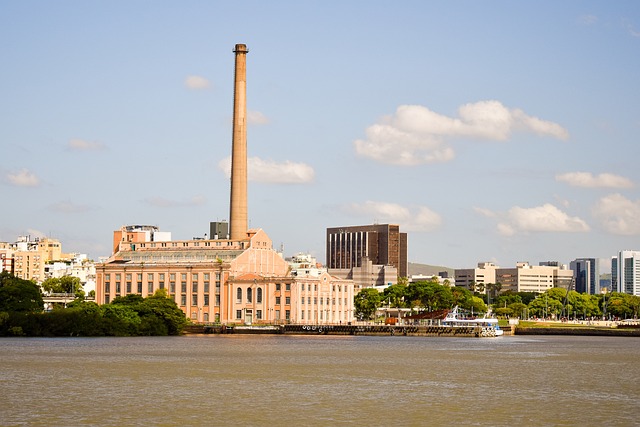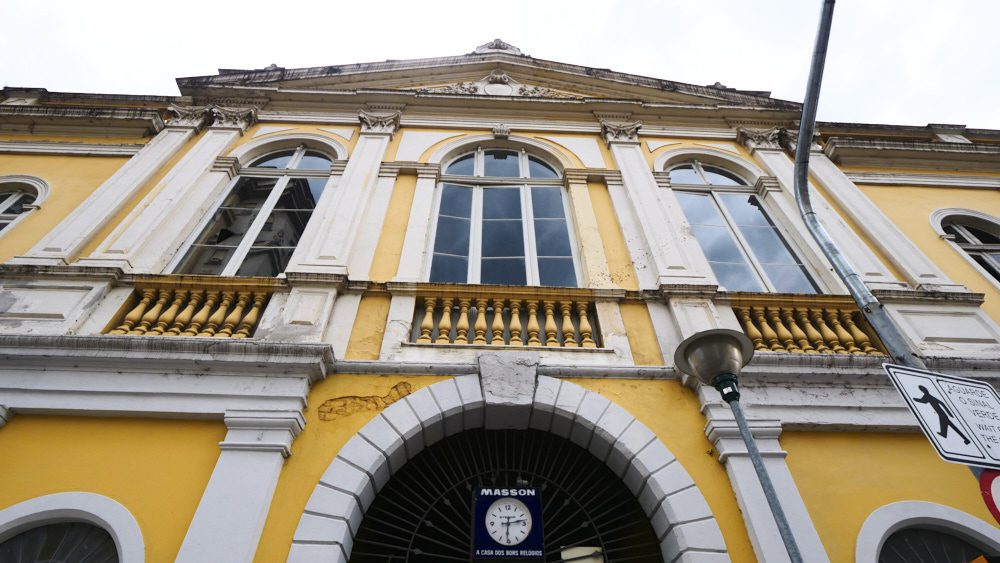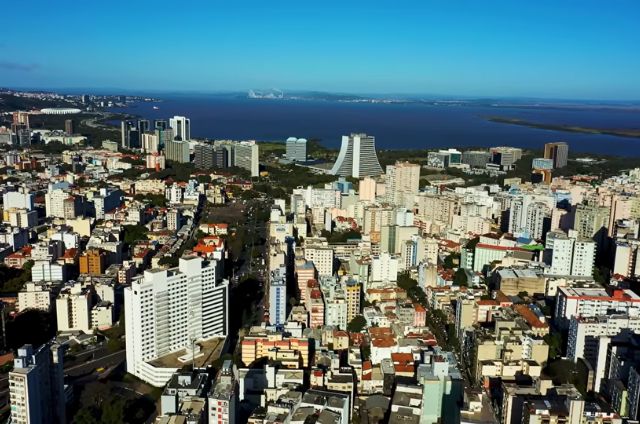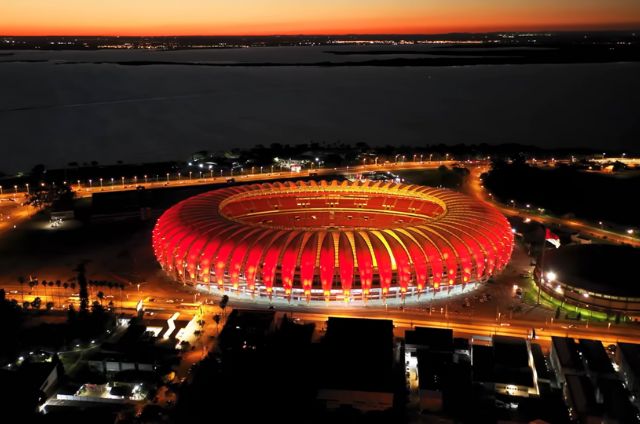Porto Alegre is the bustling capital of the Brazilian state of Rio Grande do Sul. It blends tradition with modernity. Known for its rich cultural heritage, thriving economy, and picturesque landscapes, Porto Alegre stands as a beacon of the Brazilian south.
This article presents you with the city’s history, culture, economy, and unique characteristics that make it a captivating destination.

Founded in 1772 by Portuguese settlers, Porto Alegre’s history has diverse influences. Initially, the city served as a strategic point for the Portuguese in their expansion into the continent’s interior.
The arrival of Azorean couples, who were encouraged to settle in the area, marked the beginning of Porto Alegre’s growth. Over time, the city became a melting pot of cultures, with significant German, Italian, Spanish, and African influences shaping its social fabric.
During the 19th century, Porto Alegre’s importance grew as it became a hub for trade and immigration. The influx of European immigrants, particularly Germans and Italians, played a crucial role in the city’s cultural and economic development.
The German immigrants, for instance, introduced new agricultural practices and industries, while the Italians contributed to the city’s culinary and architectural landscape. This period also saw the establishment of educational and cultural institutions, laying the foundation for the city’s intellectual and artistic life.
Explore Porto Alegre, the Meat Capital of Brazil! Enjoy BBQ, parks, museums, and vibrant neighborhoods. A must-visit for foodies and culture lovers.

Porto Alegre is often referred to as a cultural melting pot, and for good reason. The city’s cultural diversity is evident in its festivals, cuisine, music, and arts. One of the most notable cultural events is the Porto Alegre Book Fair, one of the largest open-air book fairs in Latin America. Held annually in the city’s historic center, the fair attracts authors, publishers, and book lovers from around the world, showcasing the city’s literary tradition.
The city’s music scene is equally vibrant, with a strong tradition of Brazilian gaucho music, a genre that reflects the rural culture of the southern region. This music, characterized by its melancholic melodies and poetic lyrics, often tells stories of the gauchos, the South American cowboys who once roamed the pampas. In addition to traditional music, Porto Alegre has a thriving indie and rock scene, with numerous bars and venues hosting live performances.
Porto Alegre is also home to a thriving arts community. The city boasts several art galleries and museums, such as the Fundação Ibere Camargo, an iconic modern art museum designed by the renowned Portuguese architect Álvaro Siza.
The museum, perched on the banks of the Guaíba River, houses an impressive collection of works by the influential Brazilian painter Ibere Camargo. The Usina do Gasômetro, a former power plant converted into a cultural center, is another significant cultural landmark. It hosts exhibitions, theater performances, and film screenings, serving as a hub for artistic expression in the city.

The culinary scene in Porto Alegre is a delightful reflection of its multicultural heritage. The city is known for its traditional gaucho barbecue, or churrasco, a staple of the region’s cuisine.
Churrascarias, or barbecue restaurants, are ubiquitous in Porto Alegre, offering a variety of grilled meats served with a selection of side dishes. The preparation of churrasco is an art form, with meats skewered on large metal rods and cooked over an open flame. The result is a succulent, flavorful experience that is a must-try for visitors.
Italian influence is also prominent in Porto Alegre’s culinary landscape. The city boasts numerous Italian restaurants, serving dishes that range from traditional pasta and pizza to more unique regional specialties. One such specialty is the galeto al primo canto, a roasted young chicken dish that is a favorite among locals.
Porto Alegre’s food scene is not limited to traditional dishes. The city has a growing number of international restaurants, reflecting its cosmopolitan nature. From Japanese sushi to Middle Eastern kebabs, the city’s diverse culinary offerings cater to a wide range of tastes.
Additionally, Porto Alegre has a vibrant cafe culture, with numerous coffee shops serving high-quality Brazilian coffee. The city’s patisseries are also worth noting, offering a variety of sweet treats, including brigadeiros, a popular Brazilian chocolate confection.
Discover Vale dos Vinhedos, Brazil’s secret wine country! Enjoy scenic vineyards, wine tastings, and charming countryside. A hidden gem for wine lovers and nature enthusiasts.

Porto Alegre’s natural beauty is another aspect that makes it a unique destination. The city is situated on the eastern shore of the Guaíba River, which provides stunning waterfront views and a range of recreational activities. The river is a focal point of the city’s landscape, and its banks are lined with parks, promenades, and cultural landmarks. One of the most popular spots is the Gasômetro, where locals and tourists gather to enjoy the beautiful sunset views over the river.
The city’s green spaces are an essential part of its charm. Porto Alegre is home to numerous parks and gardens, offering residents and visitors a respite from the urban hustle.
The Parque Farroupilha, also known as Redenção, is one of the city’s most iconic parks. Spanning over 37 hectares, the park features lush gardens, lakes, and walking paths. It is a popular spot for picnics, outdoor sports, and cultural events. The park also hosts a vibrant Sunday market, where vendors sell everything from local crafts to delicious street food.
Another notable green space is the Jardim Botânico de Porto Alegre, a botanical garden that showcases a wide variety of native and exotic plant species. The garden is a haven for nature enthusiasts and offers a peaceful environment for leisurely strolls. It also serves as an educational center, promoting environmental awareness and conservation.

Porto Alegre is not only a cultural and historical hub but also a significant economic center in Brazil. The city’s economy is diverse, with key industries including technology, manufacturing, finance, and education.
Porto Alegre is home to several multinational corporations and a thriving tech startup scene, earning it the nickname “Brazil’s Silicon Valley.” The city’s favorable business environment, coupled with a highly educated workforce, makes it an attractive destination for investors and entrepreneurs.
The city’s port, located on the Guaíba River, is one of the busiest in the region and plays a crucial role in the local economy. The port facilitates the export of various goods, including agricultural products, machinery, and chemicals.
Additionally, Porto Alegre’s strategic location in the southern part of Brazil makes it a vital transportation and logistics hub, connecting the country to neighboring Argentina and Uruguay.
Porto Alegre is also a center for education and research. The city is home to several prestigious universities, including the Federal University of Rio Grande do Sul (UFRGS), one of the top universities in Brazil. These institutions contribute to the city’s vibrant intellectual community and play a crucial role in driving innovation and development.
Explore Rio de Janeiro, Brazil’s Party City! Enjoy stunning beaches, vibrant nightlife, iconic landmarks, and lively festivals. A must-visit for adventure and fun seekers.

Sports are an integral part of life in Porto Alegre, with football being the most popular sport. The city is home to two major football clubs, Grêmio Foot-Ball Porto Alegrense and Sport Club Internacional, both of which have a rich history and a passionate fan base.
The rivalry between these two clubs, known as the “Grenal,” is one of the fiercest in Brazilian football. The matches between Grêmio and Internacional are highly anticipated events, drawing large crowds and creating an electric atmosphere in the city.
In addition to football, Porto Alegre offers a range of recreational activities. The city’s parks and waterfront areas provide ample opportunities for outdoor sports, such as cycling, jogging, and kayaking. The region’s natural beauty also makes it a popular destination for eco-tourism, with activities like hiking and bird-watching attracting nature enthusiasts.
Porto Alegre’s sports culture is not limited to traditional sports. The city has a growing interest in alternative sports, such as skateboarding and surfing. The city’s skate parks and surf spots provide a platform for local talent and foster a sense of community among sports enthusiasts.
Like many urban centers, Porto Alegre faces several challenges, including traffic congestion, pollution, and social inequality. The city’s rapid growth has put pressure on its infrastructure, leading to issues such as inadequate public transportation and insufficient housing. Additionally, Porto Alegre’s economic development has not been evenly distributed, with significant disparities in wealth and access to services.
Despite these challenges, Porto Alegre has a bright future. The city has made significant strides in addressing its issues, with initiatives to improve public transportation, expand green spaces, and promote sustainable development. The local government has also implemented social programs to address inequality and provide support to marginalized communities.
Porto Alegre’s strong cultural identity and sense of community are key assets in its efforts to overcome these challenges. The city’s residents, known as Porto-Alegrense, are known for their warmth, hospitality, and resilience. This community spirit is evident in the city’s numerous cultural festivals, community events, and volunteer initiatives.
Porto Alegre is a city that captivates with its rich history, vibrant culture, and stunning natural beauty. It is a place where tradition and modernity coexist, creating a unique and dynamic urban landscape.
From its diverse culinary scene to its thriving arts community, Porto Alegre offers a wealth of experiences for residents and visitors alike. Whether you are a history buff, a nature lover, or a sports enthusiast, Porto Alegre has something to offer, making it a must-visit destination in Brazil.
Counter
101 Countries • 1432 Cities